Politics
Over 15,000 Māori and Moriori Heritage Items Reside Abroad
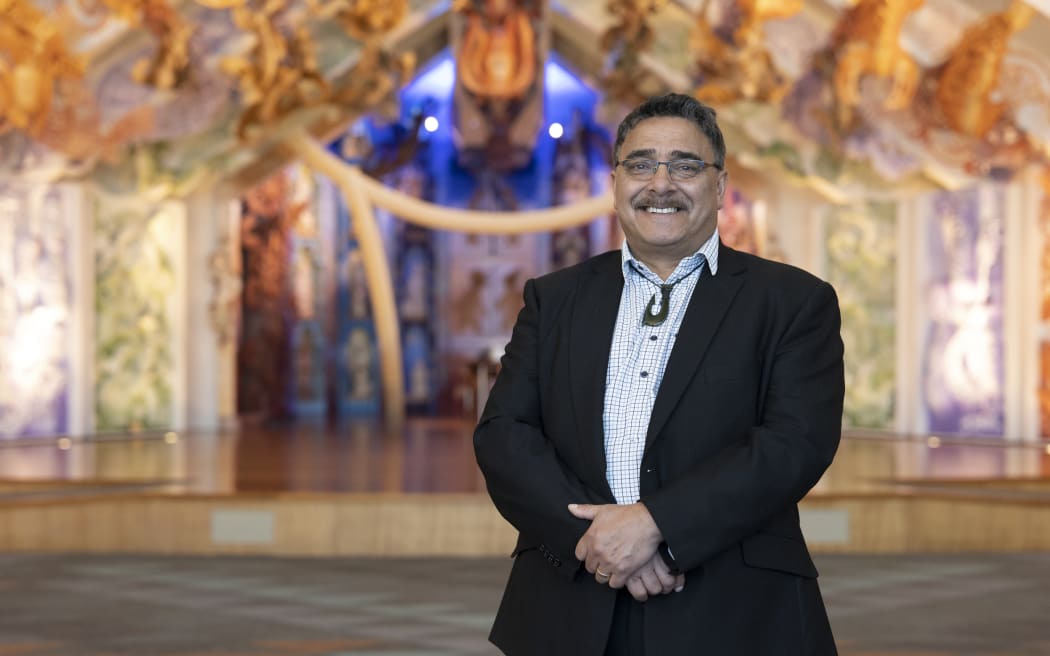
More than 15,000 pieces of Māori and Moriori cultural heritage items are currently located in museums and universities outside of New Zealand. This revelation comes from Arapata Hakiwai, the Kaihautū of Te Papa Tongarewa, the national museum of New Zealand, based in Wellington. Hakiwai has been with Te Papa since its inception in 1998 and has dedicated his career to addressing the historical displacement of these cultural treasures.
Hakiwai’s work began under the guidance of esteemed academic Sir Hirini Moko Mead, who encouraged him to transition from teaching to working at the national museum. Early on, Hakiwai recognized significant gaps in the museum’s approach to Māori and Moriori heritage, stating that many ancestral items had been taken or traded with other institutions worldwide. He remarked, “Māori and Moriori ancestors, hundreds, thousands of them were taken, traded, swapped, exchanged, sold to other museums.”
Through extensive research, Hakiwai estimates that the number of Māori and Moriori items held internationally exceeds 16,000. He noted that over 33 museums in the United States and more than 30 in the United Kingdom possess these treasures, with the Field Museum in Chicago housing one of the largest collections, comprising over 2,500 Māori taonga.
Hakiwai emphasized that a substantial portion of indigenous cultural heritage remains offshore, and much of it originates from earlier periods. He expressed concern that “over 95 percent wouldn’t know of that, wouldn’t be aware of the extent of that or where their taonga are.” He advocates for this information to be readily accessible to Māori and Moriori people as a matter of right.
The issue of cultural heritage repatriation has gained traction globally, especially since the establishment of the Karanga Aotearoa repatriation programme in 2003, which initially focused on the return of human remains. Hakiwai noted that many museums have agreed to return ancestral remains, marking a significant shift in attitudes. He stated that the old practice of amassing treasures is increasingly being questioned, although some institutions continue to acquire artifacts.
Reflecting on the impact of the 1984 Te Māori exhibition, Hakiwai observed that it played a crucial role in shaping relationships between Māori and overseas museums. He pointed out the Field Museum’s involvement in the restoration of the wharenui Ruatepupuke, originally built in 1881 in Tokomaru Bay. The museum’s collaboration with indigenous people illustrates a model for how museums can engage with Māori communities.
Hakiwai recounted a poignant visit from elders in Tokomaru Bay who expressed the need to “re-clothe” Ruatepupuke, which currently resides in Chicago. They conveyed that the whare was “lonely” and “naked,” leading to a partnership with the Field Museum to restore the structure while keeping it in Chicago. This partnership highlights the potential for museums to support cultural identity and heritage preservation.
Hakiwai believes that museums can serve a higher purpose by uplifting cultural foundations and identities. He stated, “If that is the desire of iwi, hapū, and whānau for their taonga to be returned and homed we will work with them to achieve those ends.” He emphasizes that having taonga in their communities can elevate histories and significance far beyond the artifacts sitting on display.
As the conversation around cultural heritage continues to evolve, Hakiwai’s work at Te Papa aims to reconcile the past with a vision for the future, fostering partnerships that respect and honor Māori and Moriori cultural identities.
Politics
New Zealand Experts Call for Action Amid Gaza Crisis Debate

The ongoing crisis in Gaza has prompted urgent discussion among foreign policy experts in New Zealand, who are advocating for government action. Their views, however, differ significantly on the best course of response as the humanitarian situation escalates.
One perspective emphasizes the need for immediate humanitarian aid. Experts argue that New Zealand should increase its support for organizations providing relief in Gaza. They highlight the dire conditions faced by civilians, with reports indicating that over 1,000 lives have been lost since the conflict intensified in early March 2024. This group underscores the moral obligation of nations to assist those in distress, especially as international attention remains focused on the region.
Conversely, another camp of experts believes that New Zealand’s response should prioritize diplomatic engagement rather than direct aid. They suggest that the government should work with international partners to promote a ceasefire and encourage negotiations between conflicting parties. This viewpoint stresses that while humanitarian efforts are vital, a sustainable resolution can only be achieved through diplomatic channels.
In light of these differing opinions, New Zealand’s foreign policy remains under scrutiny. The government has yet to announce a definitive course of action, leading to speculation about its priorities in addressing the crisis. Political analysts point out that public opinion is also divided, with some citizens calling for immediate intervention while others advocate for a more cautious approach.
As discussions continue, the New Zealand government faces the challenge of balancing domestic expectations with its international commitments. The crisis in Gaza has drawn attention to the country’s foreign aid policies, raising questions about how they align with New Zealand’s values and principles on the global stage.
March 2024 is shaping up to be a pivotal month for New Zealand’s foreign relations. With the situation in Gaza worsening, the government’s decisions could have lasting implications for its standing in international affairs. The need for clear and decisive action has never been more pressing, as the world watches how New Zealand navigates this complex landscape.
In summary, the debate among foreign policy experts reflects the broader tensions faced by governments worldwide as they respond to crises. New Zealand’s approach will likely influence its international relationships and the effectiveness of its humanitarian efforts in Gaza. As experts continue to voice their opinions, the urgency of the situation demands careful consideration and prompt action from officials.
Politics
Wellington Dancers Challenge Employment Status, Court Orders Compliance

Seven dancers from the Wellington Calendar Girls club are pursuing a case in the Employment Court to clarify their employment status, following a series of events that have raised significant concerns regarding their rights and safety. The women are seeking a declaration that they are employees rather than independent contractors, which would entitle them to greater legal protections under the Employment Relations Act 2000.
The situation escalated in 2023 when the dancers attempted to negotiate collectively for better working conditions after receiving a contract they deemed “manipulative.” Subsequently, nineteen dancers were dismissed via a Facebook post, instructed to clear out their lockers and not return to work.
Legal Proceedings and Non-Publication Orders
In response to their circumstances, the seven women filed for a non-publication order to protect their identities due to fears that exposure could harm their employment, housing opportunities, and personal safety. A ruling from Chief Employment Court Judge Christina Inglis granted this order in May 2023, suppressing their identities to mitigate the stigma associated with their profession.
Judge Inglis emphasized the urgency of the situation, stating, “I accorded urgency to the application given the nature of the alleged breaches and the concerns that had underpinned the making of the orders of non-publication in the first place.” An urgent hearing was scheduled for the week of the application, but it was cancelled after both parties agreed to respect the non-publication orders.
The judge confirmed, “The defendants confirm that they have removed all offending posts,” although no details were provided regarding the specific content of those posts.
Concerns About Safety and Reputations
During the proceedings, the women outlined several concerns regarding the potential repercussions of their identities being made public. They typically use stage names while working, avoiding the use of their real names to protect their privacy. However, their legal case has been presented using their actual names, leading to heightened anxiety about societal judgments and discrimination.
One dancer, who is a member of a church, expressed fear about the potential backlash from her congregation, while others have reported negative impacts on their housing applications. One woman was even dismissed from a government position upon it being disclosed that she had worked in the sex industry.
The women, all young, articulated their worries about how the stigma surrounding their profession could severely damage their reputations and affect their families. They also cited safety concerns regarding interactions with former clients and the public.
In a recent ruling, Judge Inglis issued orders preventing Calendar Girls from disclosing any identifying information about the women involved in the case. This directive applies to “all forms of communication, including oral, written, electronic, and any other medium.”
The substantive case is scheduled for a five-day hearing in February 2026, which will address the broader implications of their employment status and the treatment they have received.
Calendar Girls NZ Ltd operates clubs in various locations, including Christchurch, Auckland, Wellington, and Queenstown, and the outcome of this case could set a significant precedent for workers in the adult entertainment industry across New Zealand.
Politics
New Electoral Laws Prompt Concerns Over Voter Accessibility
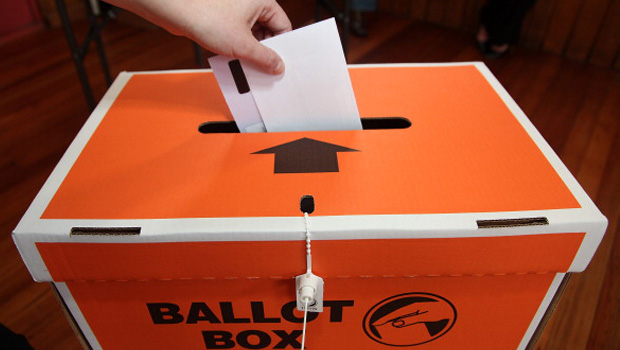
The New Zealand government is set to implement significant changes to its electoral laws, raising questions about the impact on voter accessibility ahead of the upcoming general election in 2024. Voters will have a twelve-day advanced voting period during which they must ensure their enrollment details are correct, as no changes will be accepted once this period begins.
The initiative has sparked debate, particularly regarding its timing and implications. According to statistics, in 2023, approximately 134,000 individuals changed their addresses or electorates during the advanced voting period, while nearly 100,000 people enrolled to vote. These figures indicate that many voters may not be fully prepared for the new regulations, which could hinder participation.
Paul Goldsmith, New Zealand’s Minister of Justice, is advocating for these changes, citing the need to reduce the administrative burden on the Electoral Commission. However, officials have cautioned that these amendments could potentially decrease voter enrollment rates and turnout, as well as increase the number of disallowed votes.
Concerns About Accessibility and Participation
Critics argue that making the voting process more complex could disenfranchise many citizens. Francesca Rudkin expresses concern that these changes prioritize administrative efficiency over voter accessibility. She emphasizes that voting should be made as accessible as possible to ensure that all New Zealanders can exercise their democratic right.
Goldsmith contends that the changes will result in faster election outcomes by minimizing the processing of special votes. However, critics question whether the speed of results should take precedence over ensuring that every eligible voter has the opportunity to participate. The call for educational campaigns on the new rules is seen as insufficient, particularly given the high number of individuals who may not be aware of the changes.
The Electoral Commission has noted that the current system, which allows for last-minute changes, places a significant burden on election administration. As David Seymour pointed out, voters must take responsibility for their registration and ensure that they are informed. Yet, the concern remains that those who are less organized may be disproportionately affected by these new rules.
Goldsmith faces a challenging task as he navigates the balance between administrative efficiency and voter engagement. The upcoming election will serve as a crucial test of these changes, with the potential for significant implications on voter turnout and representation in Parliament.
As the nation prepares for the 2024 General Election, it is essential for voters to understand the new regulations and ensure their enrollment details are accurate well in advance of the election date. Failure to do so could lead to a reduction in participation, undermining the democratic process that the government aims to uphold.
Politics
Council Meeting Erupts Over Proposed Ban on Private Helicopters
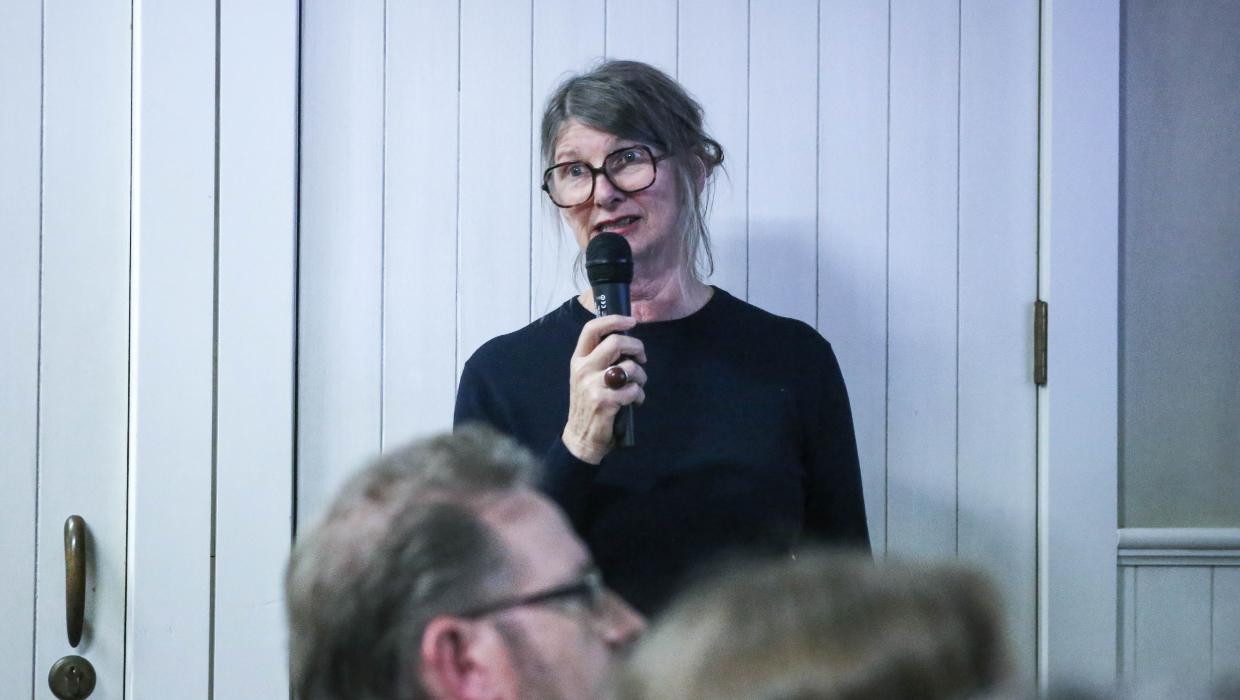
A heated council meeting in the heart of the community took place on October 24, 2023, as residents voiced their opposition to a proposed ban on private helicopters in residential areas. The motion, which aimed to address growing concerns regarding noise pollution and safety, faced immediate backlash from campaigners who rejected perceptions of being “jealous lefties.”
As tensions escalated, council members were met with impassioned arguments from local residents who expressed their frustration over the potential restrictions. The meeting highlighted a significant divide within the community, with some residents advocating for the ban while others defended their right to use private helicopters.
Community members opposed to the ban argued that private helicopters serve essential functions, such as emergency medical transport and business operations. Many residents emphasized the economic benefits these services bring, particularly to remote areas where access to services can be limited.
During the meeting, one prominent campaigner stated, “We are not against progress; we are against unnecessary restrictions that could hamper our livelihoods.” This sentiment resonated with numerous attendees who rallied behind the campaign for private helicopter access.
The council’s proposal stemmed from a series of complaints regarding the noise generated by helicopters, which some residents described as disruptive. Concerns over potential safety hazards associated with low-flying aircraft in densely populated neighborhoods also played a significant role in the council’s deliberations.
Despite the passionate discourse, council members ultimately decided to table the motion, indicating that further discussions would be necessary to find a balanced solution. This decision left many campaigners relieved but aware that the issue is far from resolved.
One council member remarked, “We need to consider all perspectives before making any decisions that impact our community.” The meeting underscored the complexities of balancing public safety and individual freedoms, particularly in urban settings where growth and development continue to shape the landscape.
As discussions continue, it remains to be seen how the council will navigate the differing viewpoints on the use of private helicopters. Community engagement will be vital in shaping future policies that address both safety and economic considerations in the area.
-
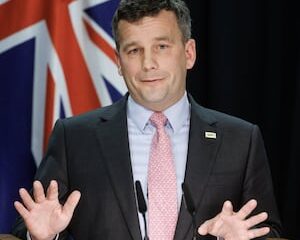
 Politics2 weeks ago
Politics2 weeks agoDavid Seymour Proposes Fast-Track Law for New Supermarkets in NZ
-

 Entertainment2 weeks ago
Entertainment2 weeks agoGeorge Calombaris Opens Up About Alcohol Struggles After Scandals
-

 Top Stories2 weeks ago
Top Stories2 weeks agoTragic Crash Claims Three Lives on Masters Rd Near Waiuku
-
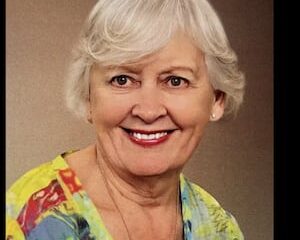
 World2 weeks ago
World2 weeks agoDaughter Accused of Murdering Mother in Khandallah Home
-

 World2 weeks ago
World2 weeks agoCoalition Leaders Address UN Rapporteur’s Criticism, Clarify Response
-

 World2 weeks ago
World2 weeks agoKalyn Ponga Explores Future Options Amid Newcastle Knights Struggles
-

 World2 weeks ago
World2 weeks agoDriver High on Magic Mushrooms Crashes with Child in Car
-

 Top Stories2 weeks ago
Top Stories2 weeks agoTauranga Airline Suspended After Safety Concerns Arise
-

 Health2 weeks ago
Health2 weeks agoWoman’s Missing Engagement Ring Found in Waiuku Mudflats
-

 Business2 weeks ago
Business2 weeks agoSouth Waikato Trades Training Centre Faces Closure Proposal
-

 World2 weeks ago
World2 weeks agoQueenstown’s The Rees Hotel Fined $22,000 for Illegal Crayfish Sales
-

 Top Stories2 weeks ago
Top Stories2 weeks agoBlues Consider Move to Mt Smart in Search of Better Attendance





















